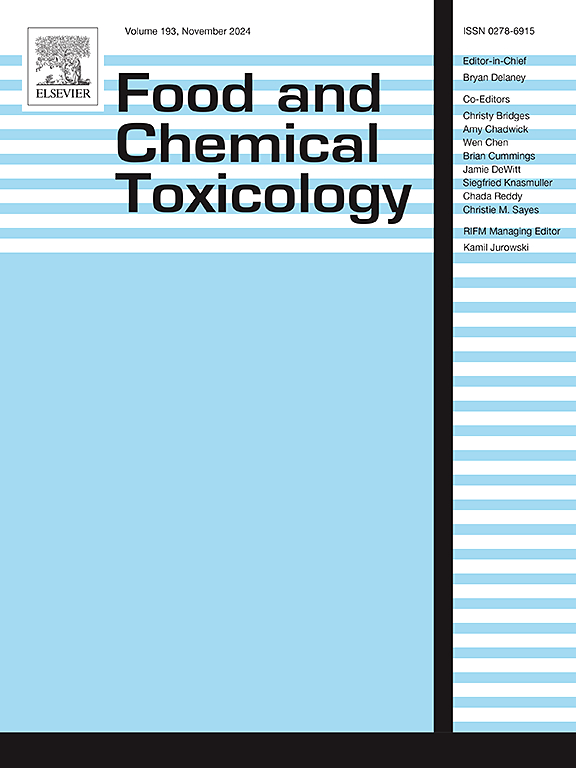The protective effect of tiger nut (Cyperus esculentus L.) oil on a male rat model of reproductive disorders induced by cigarette smoke
IF 3.9
3区 医学
Q2 FOOD SCIENCE & TECHNOLOGY
引用次数: 0
Abstract
Cigarette smoke contains many harmful components that can damage the blood-testis barrier, cause changes in testicular tissue structure, and directly or indirectly affect sperm production. Tiger nut (Cyperus esculentus L.) is an underground tuber of a perennial herbaceous plant, and its extract has been shown to have antioxidant properties and the potential to improve male reproductive function.
In view of the above, this experiment was designed to investigate the fatty acid composition of tiger nut oil and its protective effect as a daily dietary supplement against cigarette smoke-induced reproductive damage in male rats. By establishing a rat reproductive toxicity model and administering different doses of tiger nut oil by gavage, the protective effect of tiger nut oil on reproductive damage in rats was evaluated. Daily status and signs of the rats were analyzed, serum levels of key hormones were measured, oxidative stress markers and testicular tissue sections were measured, and the results were statistically analysed using Principal Component Analysis. The experimental results indicate that daily consumption of tiger nut oil can improve the reproductive system function in male rats, stabilise related hormone levels and enhance antioxidant capacity.

求助全文
约1分钟内获得全文
求助全文
来源期刊

Food and Chemical Toxicology
工程技术-毒理学
CiteScore
10.90
自引率
4.70%
发文量
651
审稿时长
31 days
期刊介绍:
Food and Chemical Toxicology (FCT), an internationally renowned journal, that publishes original research articles and reviews on toxic effects, in animals and humans, of natural or synthetic chemicals occurring in the human environment with particular emphasis on food, drugs, and chemicals, including agricultural and industrial safety, and consumer product safety. Areas such as safety evaluation of novel foods and ingredients, biotechnologically-derived products, and nanomaterials are included in the scope of the journal. FCT also encourages submission of papers on inter-relationships between nutrition and toxicology and on in vitro techniques, particularly those fostering the 3 Rs.
The principal aim of the journal is to publish high impact, scholarly work and to serve as a multidisciplinary forum for research in toxicology. Papers submitted will be judged on the basis of scientific originality and contribution to the field, quality and subject matter. Studies should address at least one of the following:
-Adverse physiological/biochemical, or pathological changes induced by specific defined substances
-New techniques for assessing potential toxicity, including molecular biology
-Mechanisms underlying toxic phenomena
-Toxicological examinations of specific chemicals or consumer products, both those showing adverse effects and those demonstrating safety, that meet current standards of scientific acceptability.
Authors must clearly and briefly identify what novel toxic effect (s) or toxic mechanism (s) of the chemical are being reported and what their significance is in the abstract. Furthermore, sufficient doses should be included in order to provide information on NOAEL/LOAEL values.
 求助内容:
求助内容: 应助结果提醒方式:
应助结果提醒方式:


